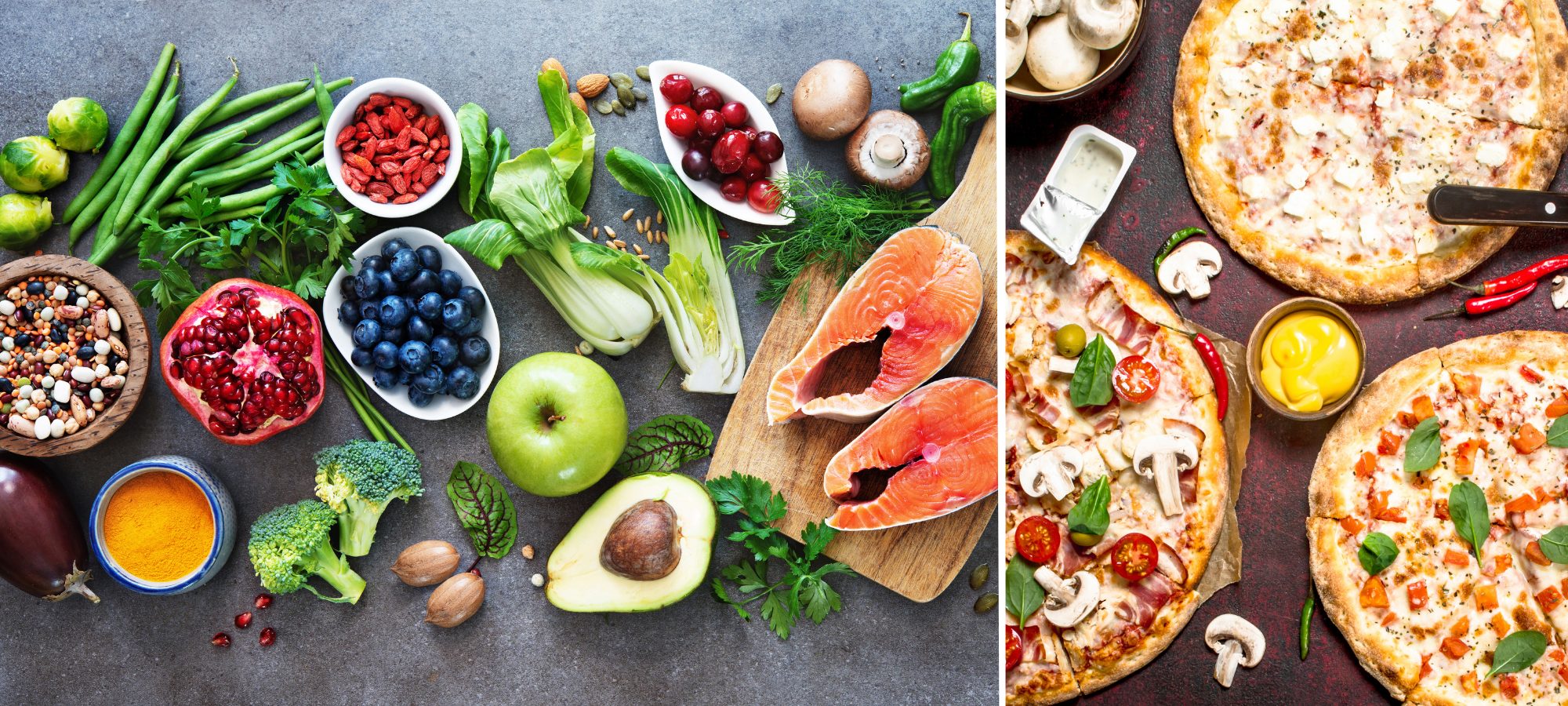“We need to show people that you eat healthy because it makes you feel good and makes your brain work better and you’ll be happier.” Professor Felice Jacka
I grew up in a home where real food, cooked from scratch with fresh fruit, veggies, grains and meat, was the norm. We ate seasonally, enjoyed a meal out once a year at the local Chinese restaurant, and lollies were forbidden (my mum was a dental nurse!). Our treats included ice cream and homemade preserved fruit, and on Christmas day we’d get a mango off Grandma’s tree if we were lucky!
Many people, particularly our kids, aren’t so fortunate. Even if family dinners are healthy, we eat takeaway often, processed foods and treats are abundantly available, and snacks are commercially designed to be as addictive as possible. Food chemists hit the jackpot with Oreo cookies, Pods and pizza when they created the ultimate sweet spot for the five human addictions for sugar, salt, fat, crunch and “melt-in-the-mouth”. And many of us are unable to resist such instantaneous pleasure.
When you consider just how addictive processed food is, it’s no coincidence that many of us struggle with food. But does food impact mental health? The short answer is YES! Many of us instinctively know that what we eat affects our mood but it’s only recently that doctors have proven this… and started to do something about it.
Leading this research is Dr Felice Jacka, Professor of Nutritional Psychiatry at Deakin University, who’s ground-breaking work has been published in Time Magazine and on the cover of the American Journal of Psychiatry. She is also founder and president of the International Society for Nutritional Psychiatry Research and ranked in the top 0.1% of scientists worldwide in 2020.
As Head of the Food and Mood Centre at Deakin University her work now focuses on the prevention of mental illness and mood disorders.
Our food system is killing us
“Our industrialized food system is the number one leading cause of illness and early death across the world,” Professor Jacka told me.
“It leads to more than $12 trillion dollars in costs to the global environment and health. Mental illness is the leading cause of global disability so knowing the two things are linked is important information for public health policy, prevention and treatment.”
Professor Jacka ran a famous study called “The SMILES trial” in 2017, which found that if you take people with even severe clinical depression and support them to improve their diet, it has a major impact on their mental health.
Her book, “Brain Changer – How diet can save your mental health” brings to light the science underpinning this revelation and what we can do about it.
Beginning her PhD in 2005, Professor Jacka examined the association between women’s diets and their mental health, focusing on depression and anxiety. She soon discovered there’s more to the equation than “you are what you eat”. Actually, you feel what you eat. Her groundbreaking research has now changed the way nutritional psychiatrists think about mental and brain health in relation to diet.
Professor Jacka also discovered that a mother’s diet is related to children’s emotional health, neurocognitive health, physical health and ADHD diagnoses, which might help explain why 50% of all mental disorders start before the age of 14.
So, how can we improve our mental health through diet?
The first step is reducing our intake of processed foods, fast food, commercial baked goods and sweets. Studies show those with severe mental health issues often consume higher quantities of pro-inflammatory foods, such as ultra-processed foods, refined grains, saturated and trans fats, and added sugar. In essence, cut the crap and enjoy the mood-boosting benefits.
Secondly, Professor Jacka recommends following a real food, plant-based diet. This means including plenty of wholefoods, plant foods (wholegrains, fruits, vegetables and legumes), and healthy fats coming from fish, nuts, seeds and olives. Research shows those with severe mental health issues often consume fewer anti-inflammatory nutrients, such as vitamins and minerals, prebiotic fibre, probiotics and omega-3 fatty acids.
Eat for your brain, not your waistline
Professor Jacka also reminded us that eating for mental health is not the same as dieting or eating for weight loss, which can be rooted in shame.
“Research shows that this link between the quality of the food we eat every day and our mental and brain health is largely independent of our body weight,” she said.
“People give up because it’s very difficult to lose weight and keep it off so they feel like they’ve failed and then think well I’ll just eat whatever and sit on the couch because I haven’t been successful.
Instead, Professor Jacka encourages us to focus on “movement, sleep and feeding yourself well and you’ll experience a profound benefit”.
The key takeaway is this: what you eat actually does impact mental health and mood. Small dietary changes, such as increasing intake of fruit, veggies, nuts and seeds and reducing intake of processed foods can have a huge impact.
So, choose wisely.
Loved this? try this blog: 63 Things To Do On A Bad Mental Health Day.









